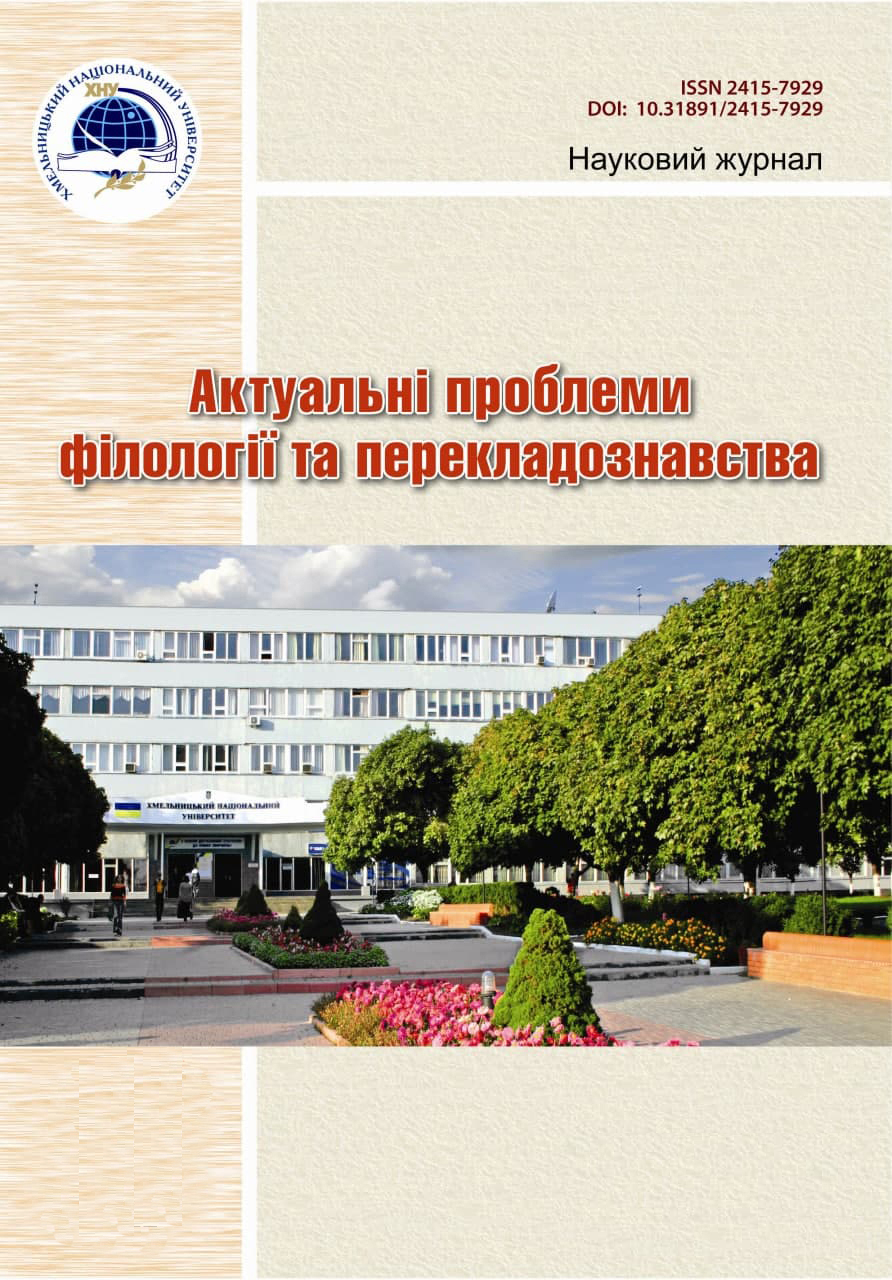SENTENCE EQUIVALENTS IN THE DRAMA-FAIRY-TALE BY LESYA UKRAINKA «THE FOREST SONG»
DOI:
https://doi.org/10.31891/2415-7929-2024-30-12Keywords:
word-sentences, sentence equivalents, quasi-sentences, non-divided sentences, interjectivations, emotionally evaluative, motivational word-sentencesAbstract
The article deals with the varieties of emotionally evaluative and motivational words-sentences (sentence equivalents) in Lesya Ukrainka's drama-fairy-tale "The Forest Song", endowed with a special emotional and stylistic load. The article traces structural, semantic, stylistic, characteristics of their demonstration, productive and unproductive types. Particular attention is paid to the phenomenon of interjectivation in the field of syntax.
The object of study in the article are sentence units expressed by interjections and modal words (65 demonstrations in total). These are peculiar substitutes for sentences (quasi-sentences), which are not subdivided, because they are expressed by service words, only in the context they have the appropriate intonation and are a mean of communication. The illustrative material is presented in conjunction with the remarks that perform an informative function in the analyzed text.
Emotionally evaluative words and sentences are productive in the drama, mainly implemented in semantic varieties with the meaning of supplication, pity, despair, etc. The second notable group is formed of exclamatory sentences expressing the will of the interlocutor. Such sentences denote an immediate, short-term action with a demand for a ban on speech, physical action, or, on the contrary, an inducement to action. Imperative exclamatory sentences are highly emotional, that is common characteristic of the inhabitants of Western Polissya. Some equivalents of the sentences have a distinct folklore origin, which was supported by the Kosachiv-Dragomanov family atmosphere. Most of the analyzed constructions are expressed by interjections or their combinations, less often by full nouns and verbs that show the ability to interjectivation.
Thus, the analyzed types of word-sentences contribute to a fuller and deeper disclosure of the inner world of the characters in the work, the everyday life of a person, his/her behaviour, emotions. At the present phase, such a research remains relevant, as it will make it possible to interpret the emotional world of Lesya Ukrainka as an author, the deep folklore of her work, and the spiritual world of her polish heroes.
Downloads
Published
Issue
Section
License
Copyright (c) 2024 Оксана КУЗЬМИЧ, Тамара ШКАРБАН (Автор)

This work is licensed under a Creative Commons Attribution-NonCommercial-NoDerivatives 4.0 International License.

